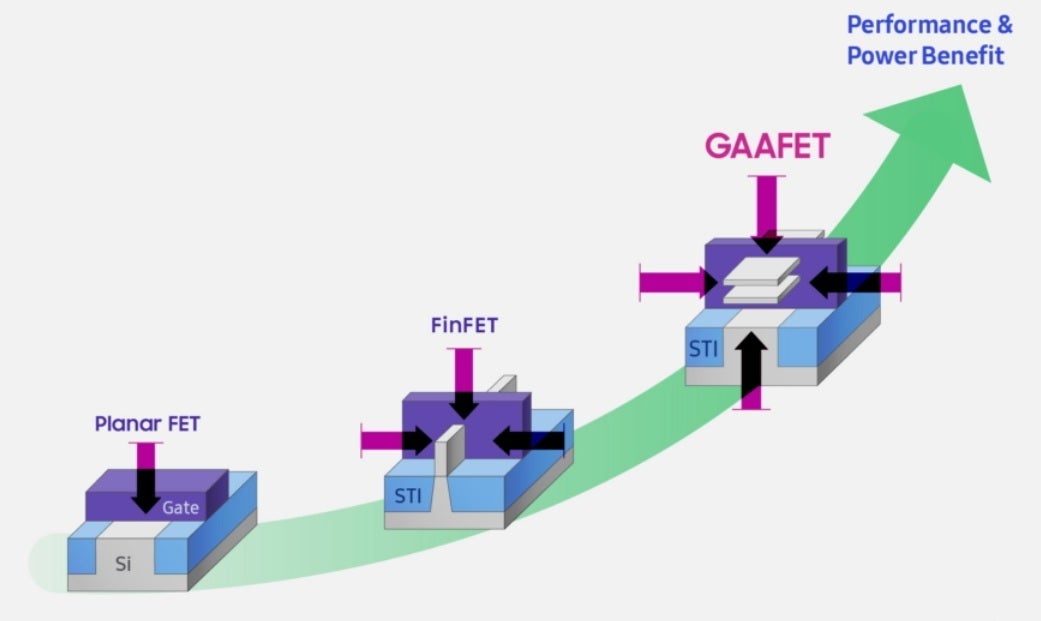Yield on Samsung's 3nm chip production reportedly drops to a 10-20% range

Samsung Foundry is the second-largest independent foundry in the world after giant TSMC. In other words, besides manufacturing the Exynos chips that it designs itself, Samsung manufactures chips based on the designs submitted by third-party companies that are the foundry's customers such as Qualcomm.
The Snapdragon 865 Applications Processor (AP) was built by TSMC using its 7nm process node. For the 5nm Snapdragon 888 chipset, Qualcomm returned to Samsung and continued to rely on the Korean outfit's foundry for the production of the 4nm Snapdragon 8 Gen 1. That's the AP that currently powers high-end Android handsets made by Samsung, Xiaomi, Motorola, OnePlus, and others.
Samsung Foundry continues to struggle with yield
But in February, reports circulated that Samsung Foundry's yield on its 4nm process node was only 35%. What this means is that only 35% of the chip dies cut from a wafer can pass through quality control. Compare that to the 70% yield achieved by TSMC for its production of the 4nm Snapdragon 8 Gen 1 Plus. In other words, all things being equal, TSMC could manufacture twice as many chips as Samsung Foundry in the same time period.

Samsung will use its Gate all around transistor architecture for its 3nm process node
TSMC ended up receiving orders from Qualcomm to build its remaining Snapdragon 8 Gen1 chipsets along with the Snapdragon 8 Gen 1 Plus SoC. We also assume that TSMC will get the nod to build the 3nm Snapdragon 8 Gen 2 sequel even if Qualcomm will need to pay TSMC a premium to have an exclusive manufacturer for the chipset build enough chips in a short period of time.
And while Samsung recently said that its yields have been improving, a report from Business Post (via Wccftech) says that the yields on Samsung's 3nm process node are still well short of the company's target. While Samsung Foundry's Gate-all-around (GAA) transistor architecture debuted with its 3nm node giving it a head start on TSMC (which will debut its GAA architecture with its 2nm node), Samsung Foundry's yield on its early 3nm production has been in a range of 10% to 20%.
Not only is that an extremely low yield, one that Samsung needs to improve, it is worse than the aforementioned 35% yield that Sammy had experienced with the 4nm Snapdragon 8 Gen 1.
Wccftech says that according to sources, the first "performance version" of its 3nm GAA chipsets that Samsung will ship to customers starting next year could actually be new in-house Exynos chips. Samsung reportedly has been working on a new family of Exynos chips for its smartphones but at this stage, it is unclear whether they will be built using the 3nm GAA process node.
TSMC and Samsung will soon have a new challenger when it comes to process leadership
TSMC and Samsung will soon have a new challenger as Intel has said that it has a goal to take over process leadership in the industry by the end of 2024. It also has first crack at obtaining a more advanced Extreme Ultraviolet (EUV) lithography machine from the leader in EUV, Dutch manufacturer ASML.
The second generation EUV machines are known as high NA or numerical aperture. The current EUV machines have an NA of .33, but the new machines will have an NA of .55. The higher the NA, the higher the resolution of the circuity patterns that are etched on a wafer. That will help chip designers and foundries create new chipsets packed with even more transistors than the billions used on current integrated circuits.
It will also stop foundries from having to run a wafer through the EUV machine a second time to add additional features to a chip. ASML says that the higher resolution patterns produced by the second-generation EUV machine will deliver The higher resolution will enable 1.7x smaller chip features and 2.9x increased chip density.
By getting its hands on this machine first, Intel will be able to take a huge step toward its goal of reclaiming process leadership from TSMC and Samsung. Each machine costs Intel more than $340 million.










Things that are NOT allowed: